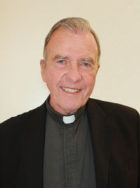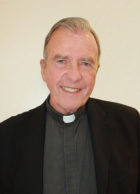I think each Catholic should try to create his or her culture, a culture that will foster awe and wonder, a culture saturated with mystery. I think all of us should evaluate our leisure activities.


I think each Catholic should try to create his or her culture, a culture that will foster awe and wonder, a culture saturated with mystery. I think all of us should evaluate our leisure activities.

Early in Msgr. James P. Shea’s provocative essay, “From Christendom to Apostolic Mission: Pastoral Strategies for an Apostolic Age” (Bismarck, North Dakota: University of Mary Press, pp.94, $13.95), he sketches what he means by Christendom and what he means by Apostolic Mission.

As I have reported previously in this weekly column, one of the most wonderful experiences I had as a parish priest was to be the co-moderator of more than 20 discussion groups.

Re-reading Father Joe Kelly’s book, “On Second Thoughts: a Book of Stories” (Omaha, Nebraska: Institute for Priestly Formation, Inc., 2021, $15.00) has been a wonderful experience for me.

One of my friends tells me that he is much more interested in reading history than he is in reading fiction. I think he feels that there is more truth in history than there is in fiction.

During the last few weeks, writing this series of columns about how we, along with God, freely create our life stories, has helped me understand my own history better.

For several years I have been teaching a philosophy course at St John’s University entitled “The Problem of God.”

Each of us is writing his or her own story with God. Each of our stories has been influenced by many factors.

All my friends are talking about the pandemic. That is not all that they are talking about, but whatever else a conversation is about, somehow the pandemic enters the conversation.
In last week’s column I tried to suggest the possibility of each person of faith creating a personal religious culture. Trying to be a Catholic in a secular culture is not easy.